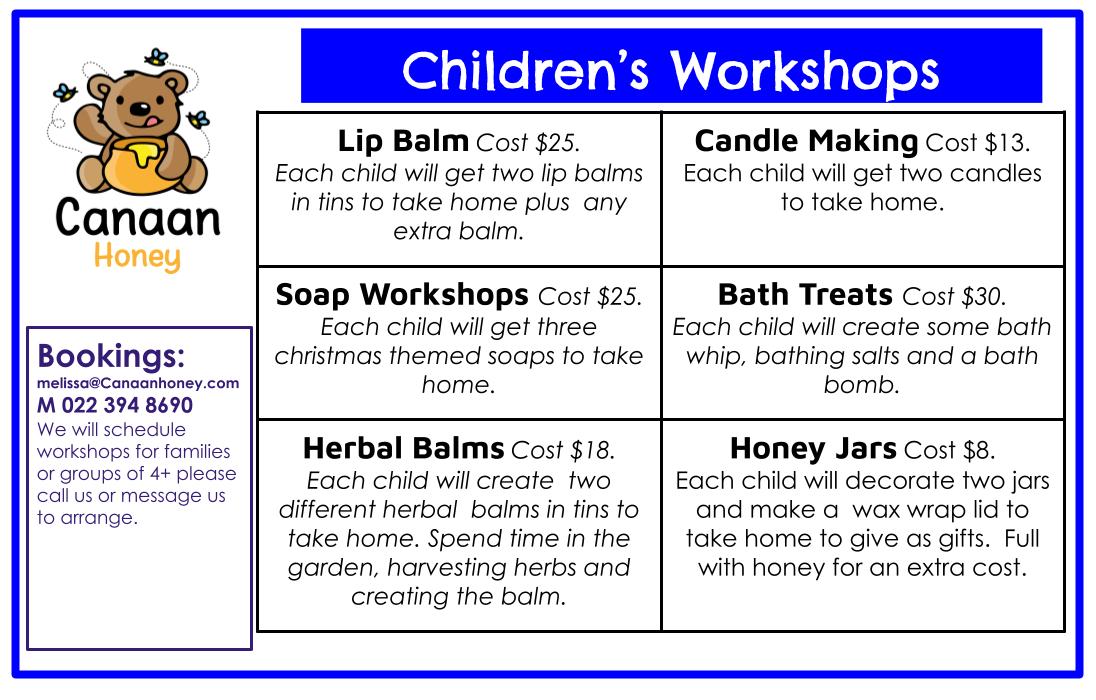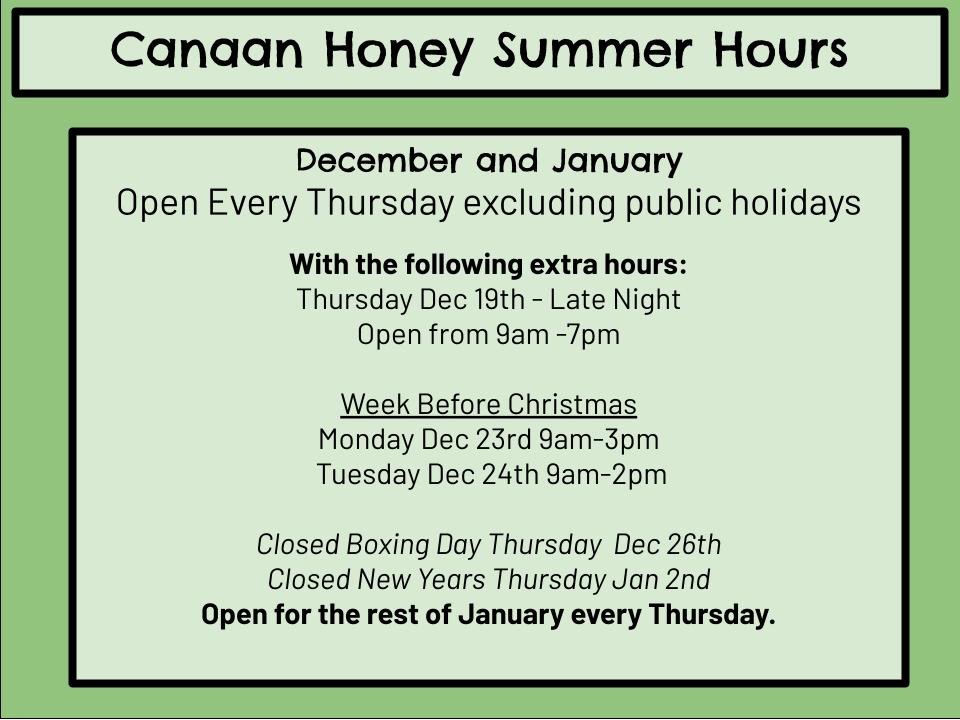|
|
|
|
|
|
|
|
Shop Days
We are enjoying working in the shop together on Thursdays. On occasions Michael is catching up mowing lawns. But he enjoys chatting with the customers so tries to be around on shop days. With good weather here now he will be in the shop more. James loves the customers and many of you will have been greeted by his gorgeous smile. He is now nearly 9 months old.
|
We have two new tasty honeys that you can sample in the shop. Native Bush and Eucalyptus Honey. And of course we have all the normal favourites ready and waiting for you.
|
If Thursdays don't work for you, we have online click-n-collect and low cost local delivery. Or please make contact with us as we are now able to open up during the week and you can pop in by arrangement for honey.
|
If you have a big order of honey, feel free to drop your containers off on the table outside our shop with your details and we will full them and let you know when they are ready to collect.
|
We look forward to seeing you soon.
|
|
|
|
|
|
Bee Swarms.
It is the season of swarms. Please contact us if you have a swarm. We will try and get there before the swarm moves along.
|
Bees naturally divide into multiple colonies via swarming especially around October/November each year. The hive raises additional queens, and one or two groups of bees leave the hive with a queen to make a new colony.
|
As beekeepers, we try to manage the hives so that they don’t swarm, but inevitably some still do.
|
|
The bees gorge themselves with honey and a large mass of them initially travel a short distance from their source hive and bunch together on a tree, fence post or other such structure. That’s when its easy to collect them and being full of honey are very docile. They then send out scouts as to where to make a permanent nest. Once they find a permanent home, they travel again and start making wax comb with their stored honey to begin a nest.
|
|
|
|
Wasps.
Wasps are an absolute pest. Whether its a small Asian paper wasp nest hanging from under a fence railing or roof eve, or a larger German wasp nest in a roof, wall or room, a trunk of a tree, roots of an agapanthus, or in a woodpile or hole in the ground… Michael has got rid of them from many places. Where possible he removes the nest, but as it is not always the easiest to get under roofs or in walls. Michael also poisons them by blowing in commercial grade insecticide.
|
Wasps are scavengers as well as pollinators. They harvest nectar from flowers and honey from beehives but rather than pollen for their protein, they eat bees, caterpillars and other insects, meat and fish… They are a real nuisance for beekeepers as they can rob hives of honey and eat the bees, totally destroying bee hives. Every nest I destroy I love that I’m saving bees, and saving people from their nasty stings.
|
|
If you have a wasp nest that needs destroying then contact us to arrange a suitable time.
|
|
|
|
|
|
Workshops
|
Our workshops are back. Now that James is a wee bit older Melissa has begun running workshops. There will be more in the summer holidays. However families and groups are welcome to book their own workshop at a time suitable for them. This might be a fun Christmas gift for a family or a great activity for a staff end of year work do. See our options below.
|
|

|
|
|
|
|
Shop Hours
Buy online with affordable daily freight via NZ Post.
|
|
Visit us at our shop open Thursdays 9-5pm. 176 Mosston Rd, opposite Mosston School, Whanganui
|
|
Christmas and Summer Hours
|
It's getting closer. These are our hours for 2024/25.
|
|

|
 
|
|
|
|
|
|
|
|
|
|
|
|
|